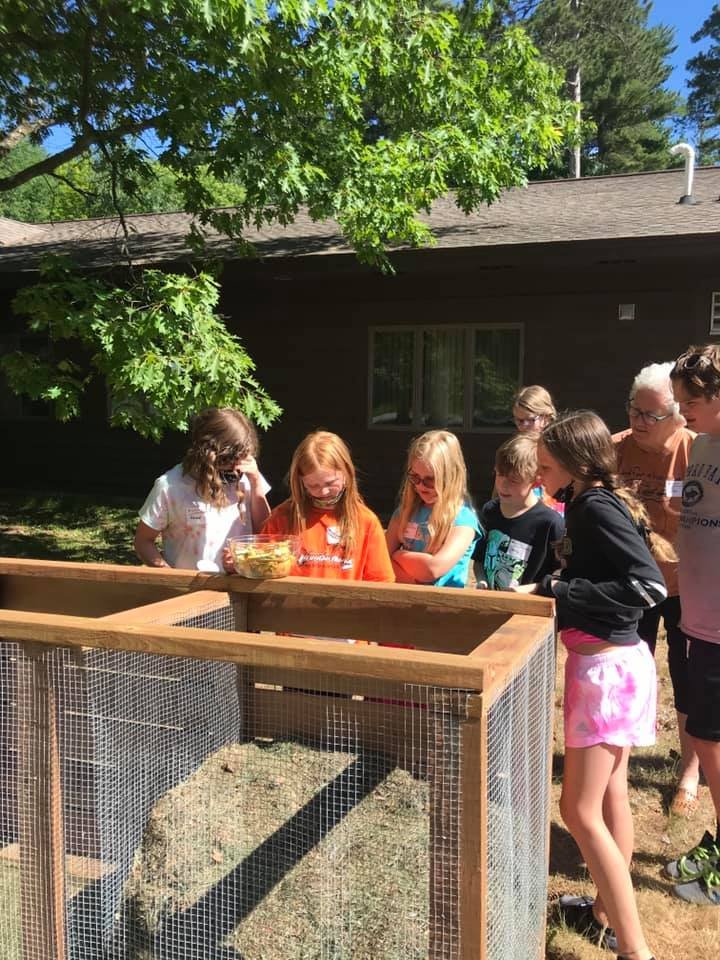Eco Faith Advocates
MISSION STATEMENT
God entrusts us with His beautiful creation by calling us to build a life that honors and sustains our world. Our purpose focuses on education to create awareness for sustainability in our personal and congregational life. By gathering and sharing information, we celebrate what we are doing, and encourage and challenge others to respond through action.
The purpose of this team is to both raise awareness of the importance of caring for the earth, as well as helping congregational ministries implement practices with the care of creation in mind. If you have suggestions, questions, or want to join the team, please contact Wanda Clark or Vicky Lorenz. Messages can be sent through the church office.
Ten Reasons Why Lutherans Care For All Creation
Theology: We affirm God as creator of all. We have an incarnation theology that cherishes the continuing presence of God in, with, and under all reality. We see redemption as the restoration of creation, as “new creation.” We see the future straining toward the fulfillment of creation.
Cross and Resurrection: The gospel leads us to see God in solidarity with the human situation in all its pain and agony, especially the most vulnerable—humans and non-humans. A theology of the cross gives us solidarity with “creation groaning in travail” and stresses that God redeems all creation. Our affirmation of resurrection offers hope for new life in this world.
Worship and Sacraments: We affirm that the material is a vehicle of the divine and that Christ is present in such ordinary elements of life as grapes and grain—the basis for our delight in and reverence for creation. Our worship invites us into transforming encounters with God deep in the flesh and in the world. We are called to worship God with creation.
Ecclesiology: Our human vocation is “to serve and to preserve” Earth. We believe that the church exists for the sake of the world. We do not have an escapist theology. We are called to continual reformation in response to the needs and crises of this life. When Luther was asked what he would do if the world would end tomorrow, he apparently replied, “Plant a tree.”
Ethics: We have an ethic of faith-active-in-love for neighbor and for all creation. Liberated from a legalism that enslaves, we are freed to address new situations, such as the ecological state of the world. We do so not to dominate but as servants to our human and non-human neighbors. We do so not out of fear or guilt or arrogance but joyfully out of grace, love, and gratitude.
Social Ministry: With a heritage back to the Reformation, Lutherans have a history of social service to the poor, the elderly, the sick, the oppressed, the marginalized—through hospitals, homes for the elderly, social ministry agencies, Lutheran Immigration Service, and Lutheran World Relief. We extend that service to healing Earth community.
Advocacy: We ELCA Lutherans have relevant social statements: “Caring for Creation” and “Sustainable Livelihood for All.” We have a staff person in environmental/hunger advocacy in Washington and Lutheran Public Policy offices in many states.
Scholarship and Education: Many Lutheran scholars have written and spoken on ecology - in theology, ethics, biblical study, and social commentary. Colleges and seminaries of the ELCA have environmental ministry courses that prepare Lutherans for leadership in church and world. Many continuing education events for clergy and laity highlight creation care.
Caring for Creation across the church: Several synods with creation-care committees have declared themselves to be Care-For-Creation Synods. Many Lutheran congregations incorporate Earth-care commitment in their life and mission—worship, education, building and grounds, discipleship at home and work, and public ministry. Lutheran camps have brought environmental concerns to many people. The ELCA headquarters has a Green Team that works to model environmental action. The ELCA offers grants for environmental projects.
Organizations for Earthkeeping: Lutherans have led in the Green Congregation Program, the Green Seminary Initiative, the Web of Creation, promoting creation-care worship throughout the church year and the Season of Creation. For more information visit Lutherans Restoring Creation.

